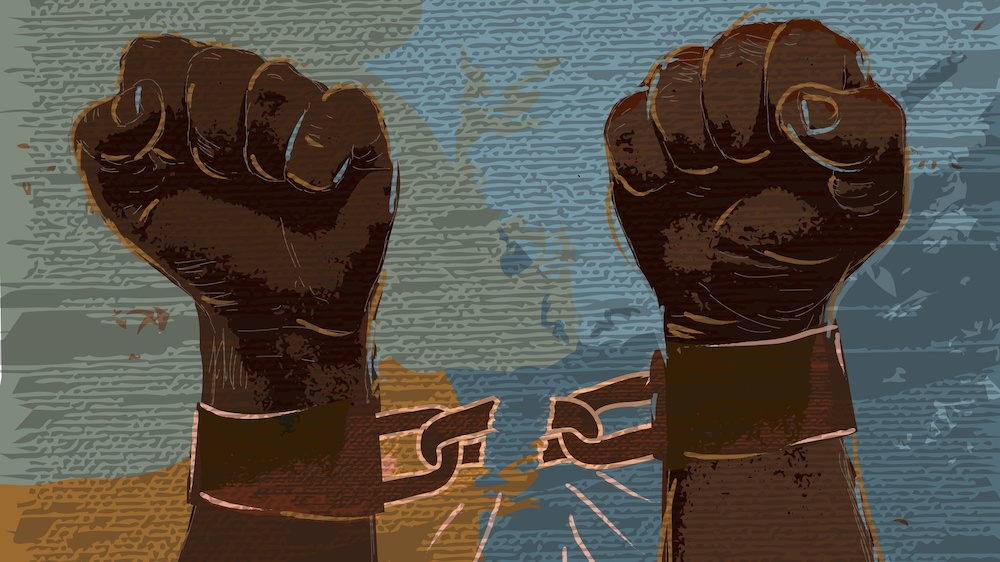If you’re interested in sharing your opinion on any cultural, political or personal topic, create an account here and check out our how-to post to learn more.
Opinions are the writer’s own and not those of Blavity's.
____
Juneteenth, which celebrates the emancipation of enslaved African Americans, has become a special holiday to me. When growing up in Western Massachusetts, in the ‘50s, ‘60s and ‘70s, I was the only Black student in every class from kindergarten through high school. I had to fight to make my voice heard. In high school, when I requested a Black history course, I was told I had to find someone to teach it. I did.
As the First Lady of New York City and a co-chair of our Taskforce on Racial Inclusion and Equity, my biggest cause for celebration this Juneteenth is watching the fresh attention to our country’s complex racial history.
The new documentaries and attention on the 100th anniversary of the destruction of Black Wall Street in Tulsa. The apology from the American Psychiatric Association for its “racist past,” which includes a doctor who said runaway slaves were mentally ill. The toppled Confederate monuments that enshrine white supremacy.
Given the traumatic year we have all endured, I am elated to claim a holiday rooted in the joy of freedom, even if belatedly discovered. It is a wonderful holiday for everyone to celebrate: Black history is American history. It belongs to all of us and we need to learn more about that history that shapes so much of who we are.
Our contemporary problems reflect old wounds. Amid COVID and civil unrest, many cities, counties, (and even the federal government) established taskforces to examine racial problems in criminal justice, health, policing and more.
At the beginning of this year, New York City made our own taskforce permanent because we recognize these problems will not dissipate as COVID fades. The virus exacerbated and exposed racial disparities and inequity, just as George Floyd’s murder spotlighted long-standing problems with policing and criminal justice. We need a long-term commitment to change.
Juneteenth is an apt metaphor for justice delayed and a reminder of the missing information about this country’s origins. The holiday was born when enslaved people in Galveston, Texas, learned on June 19, 1865 that they were free — more than two years after an emancipation effective on Jan. 1, 1863. Juneteenth combines the words “June” and “nineteenth.” It was historically celebrated in the Southwest but has become more widely observed in recent years — most states have made it a holiday or special day of observance.
With every new racial crisis there are too many Americans claiming to discover just how negative and institutionalized the challenges have been for their fellow Black Americans. Pew surveys show racial divisions on whether a renewed focus on race leads to policy changes. Black history remains under-taught in our schools. Over a dozen states in recent months have targeted the teaching of critical race theory, which is simply an academic term for exploring how race intersects with law, culture and other spheres of influence.
We should all know names like Emmett Till and Medgar Evers. The tragedy of the four little Black girls blown to bits in a Birmingham Church, the postcards sent to commemorate lynching, the schools that shuttered rather than desegregate, should be familiar stories.
Even within Black families, there is too often silence about past trauma and atrocities, including lynching and stolen land. Black families need to share and preserve their family histories. Even some descendants of the survivors of the Tulsa massacre have said their families never talked about what happened.
In that vein, our taskforce was not just an opportunity to collect data, but a chance to compose portraits of 33 communities, nearly half the population of our city, suffering under burdens that our city — like all American cities — was complicit in creating over many decades.
As our Taskforce Executive Director Sideya Sherman stated, establishing the taskforce was a once-in-lifetime opportunity to use a tragic event to begin creating a more equitable city.
Our assistance is wide-ranging: broadband, mental health support, services for undocumented residents. We are helping to create youth programs, supporting small businesses and increasing access to fresh food. We established one-stop health centers to offer a broad menu of healthcare, beyond COVID-19.
The scope of our taskforce speaks to the raw need. Communities of color like the ones we are assisting In New York can be found in any large American city.
Time will be the best judge of all our efforts in this moment: New York’s Taskforce and the taskforces around the country, the conversations about monuments and representation, the multi-racial gatherings to support Black Lives Matter.
In the meantime, Juneteenth is a reminder that freedom can never be taken for granted. It takes more than laws to set us free.
____
Chirlane McCray is the First Lady of New York City, a mental health advocate, and a co-chair of the city’s Taskforce on Racial Inclusion and Equity.
